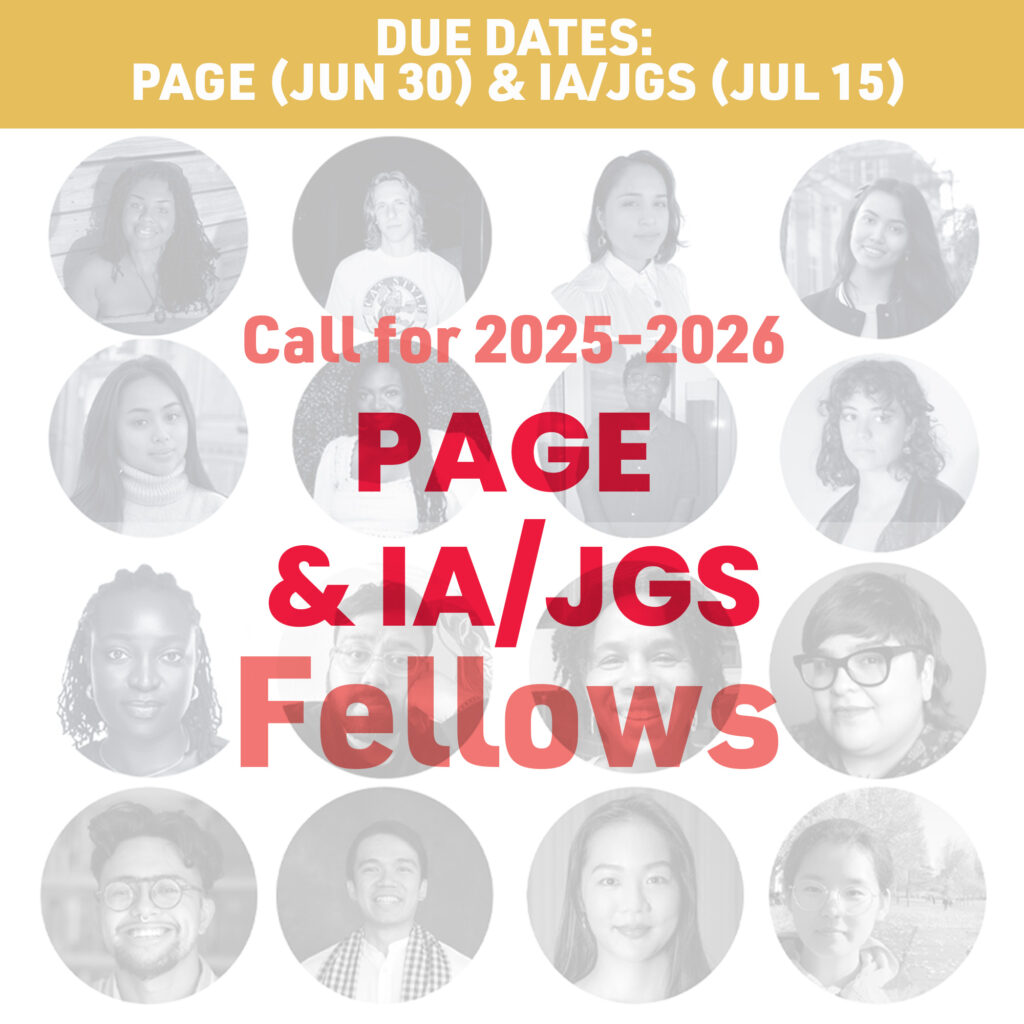The Genesis of Express Newark: A Third Space
Anne Schaper Englot, Professor of Practice of Architecture and Humanities, Rutgers University – Newark
Peter Englot, Senior Vice Chancellor for Public Affairs and Chief of Staff, Rutgers University – Newark
Abstract
In 2014, under the leadership of Chancellor Nancy Cantor of Rutgers University — Newark, faculty, staff, students, alumni, and stakeholders engaged in creating a new strategic plan for the institution centered on nurturing the university’s symbiotic relationship with the city. Through this process, the Rutgers-Newark community derived its definition of excellence: the commitment to boundary-crossing scholarship, diverse talent cultivation, and a collaborative tradition of engagement as an anchor institution in the city and the world. Dusting off an idea for a community-engaged arts center that a small group of faculty members had articulated a decade earlier, Express Newark was conceived by Newark artists, faculty, and staff in the Department of Arts, Culture and Media, alongside staff in the university’s Paul Robeson Art Gallery. Express Newark is a true collaborative in which community partners and the university can work together on equal footing in what has been called a “third space.” Together, faculty, staff, and community partners worked with KSS Architects to design the 50,000 square foot interior of the Hahne’s building that Rutgers-Newark agreed to lease. The design/build process unfolded throughout the next two-and-a-half years, from the end of 2014 to Express Newark’s opening in January 2017. Each of the faculty, staff, and community artists spent numerous hours in meetings with KSS and the project developers, L+M Development Partners, as well as with community partners and other consultants both within and outside of the university in order to customize the Express Newark space.
Project Narratives
Newark, New Jersey, is one of America’s oldest cities and arguably one of its most important industrial and cultural centers historically. The home of the Munsee Lunaape for millennia, Newark was colonized by the Dutch in 1666, then by the English. It was a training ground for colonial troops during the Revolutionary War. Eventually, it became a hub of industry where inventors such as Thomas Edison and Seth Boyden found ample resources and labor to advance their visions. It has been a welcoming port for generations of migrants from abroad and through the Great Migration from the American South — the latter of which positioned Newark to become a center of the Black Arts Movement as the home of Amiri and Amina Baraka. Like many Northern cities, it has experienced industrial flight, declining population, and a concentration of urban problems beginning in the post-World War II era, as suburbanization and segregation became ensconced in public policy at every level, and poverty in America’s urban centers rose. In 1967, when Newark became one of more than 160 cities across the U.S. to experience a rebellion brought on by decades of oppression of Black residents, the city’s image in the American psyche as a symbol of urban unrest was already deeply ingrained. Activism has enabled the city to stride toward equality over the intervening years. Still, damaging public narratives about Newark persist, primarily voiced by outsiders, especially through media based in New York City. While the distance between the two cities is less than 10 miles, there is a wide gap between accurate understandings of Newark and the racist prevailing narratives about it that remain. As the voiceover in a recent video about the arts in Newark intones: “In Newark, New Jersey, the reality of two Americas still exists. The bustling downtown shows signs of economic expansion, yet residents — predominantly people of color — are largely excluded from these opportunities.” (Lauren Craig, Newark Arts)
In 2014, under the leadership of Rutgers University – Newark Chancellor Nancy Cantor, faculty, staff, students, alumni, and stakeholders engaged in creating a new strategic plan for the institution centered on nurturing the university’s symbiotic relationship with the city. Through this process, the Rutgers-Newark community derived its definition of excellence: a commitment to boundary-crossing scholarship, diverse talent cultivation, and a collaborative tradition of engagement as an anchor institution in the city and the world.
Dusting off an idea for a community-engaged arts center that a small group of faculty members had articulated a decade earlier, Express Newark was conceived by Newark artists, faculty and staff in the Department of Arts, Culture and Media, and staff in the university’s Paul Robeson Art Gallery as a true collaboration in which community partners and the university could work together on equal footing in what has been called a “Third Space.”
Chancellor Cantor decided to prioritize investment in realizing the center, which became one of the highest priorities in the university’s new strategic plan. Express Newark took physical shape as an anchor tenant in a former department store, the Hahne & Co. Building. Long hoped-for renovation of the building rested on being able to attract a tenant like Express Newark, which L+M Development Partners, the lead entity on the project, knew would guarantee foot traffic for other prospective public tenants.
Early in the process, several Newark creatives signed on to participate in the project as resident artists: a photographer/magazine publisher operating under the name “Hycide,” a printmaking collective known as the Newark Print Shop, and a duo specializing in risograph print art books known as Endless Editions. These artists joined a larger community of artists on a multi-ethnic artists committee who helped mold the project. An equally diverse operations committee was formed from local arts administrators from the Newark Arts Council, New Jersey Performing Arts Center, the mayor’s office, and the Newark Museum, as well as entrepreneurs, faculty, and staff.
Together these individuals worked with KSS Architects to design the 50,000 square foot space within the Hahne’s building that Rutgers–Newark agreed to lease. The design/build process unfolded throughout the next two and a half years, from the end of 2014 to Express Newark’s opening in January 2017. Each of the faculty, staff, and community artists spent numerous hours in meetings with KSS and the project developers, L+M Development Partners, as well as community partners, and other consultants both within and outside the university in order to custom design the space which was to house their project within Express Newark.
As Chancellor Cantor later reflected:
For me, the origins of Express Newark is precisely the notion that we are in and of Newark, that we are not just haphazardly here. So we needed the intelligence, the intergenerational activity, the change-makers, the artistic creations to be in a place and a space – what I like to call a Third Space – that isn’t us, it isn’t them it is all of us of Newark, together.
Nancy Cantor, Express Newark Rock Steady podcast
Among the challenges faced in planning and launching Express Newark were the following:
● There was a lot of groundwork that needed to be done. Inaugural Co-Director Anne Schaper Englot bore responsibility for synthesizing this input, structuring the project, developing a staffing structure, hiring staff, coordinating between the university chancellor’s office, dean’s office, human resources, legal department, risk management, chair’s office, faculty, community partners, community members, architects, developers, funders and the university administration.
● There was ample skepticism among long-time faculty members who would be core participants in the project because plans made with previous university administrations consumed a great deal of time and energy, raised hopes, and led to nothing tangible.
● Funding for the project had to be secured, including approval from the Rutgers University Board of Governors to invest university capital funds. Private support for Express Newark had to be sought. Both prongs of fundraising ultimately were successful, including the project’s private support from the Prudential Foundation, Bank of America, L+M Development Partners, PSEG, and the Kresge Foundation.
● A multi-level communications campaign was necessary to raise awareness among Newark community members about what Express Newark was and how it would provide means of creative expression for Newarkers while building the credibility of the university (which had displaced a community decades earlier when it was constructed and had not rebuilt trust or genuine partnerships with residents). Public forums were held to begin this process, but ultimately success would depend on the degree to which Express Newark delivered on its promise.
● Some prospective resident partner artists either dropped out of the process voluntarily or experienced unforeseen emergencies that kept them from fully participating.
● Reconciling expectations with community partners for what it meant to be given space in Express Newark could be contentious. One partner experienced internal dissension among its leadership over the terms of assuming an Express Newark residency and ultimately lost two of its three principals.
● Compensation for collaborating artists from the community was a perennial issue. They were paid stipends and had access to Express Newark spaces at no charge.
● Developing an engaging website that effectively represents the innovative ethos of Express Newark was a herculean task.
● Staffing Express Newark, which had job expectations and hours outside the norms for typical university staff, resulted in persistent challenges with the university’s structures for human resources and building access.
● Because Express Newark represented such a significant investment in infrastructure to support publicly engaged scholarship, questions about the need to invest substantially in traditional faculty work often arose.
Ultimately, the relationships forged between university and community artists and partners proved to be incredibly strong. The persistence of Express Newark’s leadership and staff, with support from key university administrators, ultimately proved sufficient for overcoming organizational inertia, enabling Express Newark and the university as a whole to gain substantial credibility among the creative community in Newark as a genuine partner with the community’s interests at heart. This was evident in the increasing number of collaborations among students, faculty, and staff with community artists; the number, strength, and trajectory of connections between the university and the major arts organizations in Newark; the health and vibrancy of the arts ecosystem in Newark, which was named among the top ten arts-vibrant large metropolitan areas in the nation; and the growing influence of Express Newark as a partner organization with Newark’s arts anchors, including the Newark Arts Council, Newark Museum, Newark Symphony Hall, Newark Public Library, and the New Jersey Performing Arts Center.
The work of Express Newwark radically expands what we understand about who is a producer of knowledge, what the knowledge production process looks like, and what kinds of ideas and art-making matters. This is evident in many of the artifacts of artistic production at Express Newark, including the following:
● Express Newark Style Guide, Ned Drew, and Design Consortium
● Express Newark Website, Level Design: Jennifer Bernstein & Nick Hubbard www.expressnewark.org
● Bullet Proof Ambition: The Art of Jerry Gant, exhibition curated by community artist Linda Street
● Mirror Mirror, exhibition curated by Anonda Bell
● Shine Portrait Studio Press, LLC, Plume House of Prayer Series
● The inaugural exhibit at Express Newark, Deborah Willis’ In Pursuit of Beauty: Imaging Closets in Newark and Beyond, curated by Kalia Brooks Nelson, catalog by Chantal Fischzang
● Express Newark’s Resident Community Partner: Artistic Passion and Purpose, Michael De’Von, Director
Express Newark confronts institutional forms of power and privilege that have traditionally marginalized public, engaged, and activist scholarship in the following ways:
● Express Newark’s Inaugural Co-Directors were a faculty member, Anne Schaper Englot, and an experienced artist and gallerist from the community, Victor L. Davson.
● Co-Directors of Express Newark’s Community Media Center were local documentary filmmaker and part-time faculty members Julie Winokur and head of the City of Newark’s office of film Kenneth Gifford.
● Shine Portrait Studio in Express Newark was co-conceived and built out by faculty member Nick Kline with local photographers Tinetta Bell, Tamara Fleming, and Colleen Gutwein — subsequently, it has been managed by local photographer and Express Newark staff member Anthony Alvarez.
● Professor Keary Rosen, Director Express Newark’s Form Design Studio, is developing a 3D modeling and printing curriculum and will take part in an initiative to bring digital literacy and IT skills to Newark residents who live in the North Ward.
● The Paul Robeson Galleries at Express Newark have had vibrant programs that engage local artists and arts educators, including an extensive teaching artist program where local artists interpret the exhibits through workshops for a variety of audiences from pre-K to senior citizens to incarcerated youth.
● Express Newark has had a robust Artist-in-Residence program that has brought local artists across many media to New Arts Justice, Form Design Studio, Shine Portrait Studio, the Community Media Center, and Paul Robeson Galleries.
In the words of City of Newark Mayor Ras J. Baraka: “Art is the bread and butter; the life, soul, and breath of what this city was, what it will be, as it blossoms into itself. Going forward, we can’t do anything without art. We want to have access to art, every neighborhood, every ward, every household…” (Mayor Ras Baraka, Newark Arts)
Further, Express Newark has become the home of resident university-community partnerships that transcend disciplines, including Newest Americans and Humanities Action Lab. Express Newark has shown how universities can overcome their history in the perpetuation of structural racism and reification of power and privilege by forging reciprocal partnerships with community members and community organizations. Express Newark has made it possible for hundreds of stories to be told that turn the narrative on Newark. In the words of a Rutgers-Newark faculty member who has been working in and through Express Newark: “Our interest is how we can collaborate with the people in the community and with our students, to help empower voices, empower messages, during this time of reawakening we are seeing in the city.” (Chantal Fischzang, Introducing Express Newark’s Design Consortium). Through Express Newark:
● Hundreds of artists have been paid for the work they produce: artwork; curation; writing; photography; teaching https://www.expressnewark.org/events/symphony-of-survival-a-creative-writing-workshop/
https://www.expressnewark.org/stories/khari-johnson-ricks-selected-as-5th-artist-in-residence-at-express-newark/
https://www.expressnewark.org/events/rap-on-race-with-rice/
https://www.expressnewark.org/stories/three-murals-commissioned-to-honor-rutgers-alumni-paul-robeson/
● Hundreds of artists have been supported through mentorship, administrative support, stipends, the use of technology, equipment, space, and opportunities to show their work and develop entrepreneurial enterprises: https://www.expressnewark.org/stories/express-newark-selects-artistic-passion-purpose-as-next-third-space-resident-partner/
https://www.newark.rutgers.edu/news/express-newark-announces-newest-third-space-resident-partner
● University-community academic conferences have leveraged expertise from all sectors: https://www.expressnewark.org/stories/request-for-proposals-black-portraitures-vii-play-performance/
https://www.expressnewark.org/events/humanities-action-lab-launches-translocal-learning-studio/
https://www.expressnewark.org/events/the-tanner-lecture-on-human-values/
● Numerous research projects have been supported that lift up the community’s activism in addressing some of the most pressing issues of our time, including mass incarceration; climate change; gun violence; and racial inequities manifest across the spectrum of our social landscape: https://www.expressnewark.org/stories/express-newark-awards-more-than-200000-in-third-space-awards/
In the words of Inaugural Co-Director Victor L. Davson: “What we’re working to do is change the narrative using the arts, using scholarship…in a sense to shift that conversation — we take control of the narrative and tell our story from our location.” (Victor L. Davson, Civic Story)
Express Newark is currently moving boldly forward under the leadership of Executive Director Salamishah Tillet and Creative Director Nick Kline, building on the city’s historical legacy as an epicenter of art and activism by being a third space that bridges the campus and community and supports contemporary artists who are dedicated to social justice in Newark and beyond.
For further information:
Englot, Anne Schaper with Victor L. Davson, Chantal Fischzang, Tamara Fleming, and Nick Kline, “It’s Not About “Us”: Express Newark Prioritizing the Public Good,” Metropolitan Universities, Vol 29 No 2 (2018): The Urban Advantage: The 2017 CUMU Annual Conference Issue (Denver, Colorado) https://doi.org/10.18060/21770
Capizzi, Carla, “Express Newark, RU-N’s Arts Incubator, Now Open in Historic Former Hahne’s Department Store, Is Bringing New Synergy to Newark’s Arts District,” Rutgers University – Newark website, https://www.newark.rutgers.edu/news/express-newark-ru-ns-arts-incubator-will-open-jan-17-historic-former-hahnes-department-store
Fry, Meg, “Film Production Forum turns the spotlight on Express Newark arts incubator” ROI NJ, March 22, 2019. https://www.roi-nj.com/2019/03/22/lifestyle/film-production-forum-turns-spotlight-on-express-newark-arts-incubator/?fbclid=IwAR3KxOMx0fsMsTFnQvBowrNS7YmZ0Ex2c8qYR_ee3aHVi4R8UX1iVoSJOjs
Fogdall, Scott, “All Aboard for Art,” Rutgers Magazine, Spring 2017. https://magazine.rutgers.edu/features/allaboard-for-art
“Hahne & Company: Express Newark,” Architect Magazine, https://www.architectmagazine.com/projectgallery/hahne-co-express-newark


